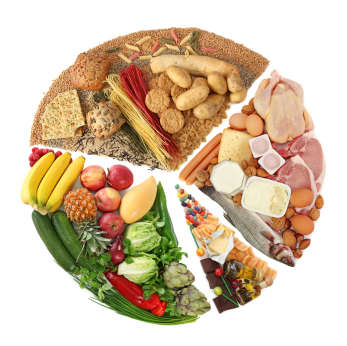Niacin, as well as the B vitamins such as thiamine and riboflavin has as huge role in the energy metabolism of every cell of the body. Niacin is one of the main essential nutrients that the body needs for good overall function. Eating a well balanced diet will provide sufficient levels of niacin. A lot of foods can provide adequate amounts of niacin that you need in your everyday. You do not really need to drink niacin supplements to achieve that. Supplements should only be used for deficiencies of niacin in the body and for therapeutic purposes in case of diseases.
Pellegra is a niacin deficiency disease characterized by dermatitis on skin that is exposed to light. The key nutrient that prevents Pellegra is having adequate levels of niacin in the body. Actually, any protein-containing food can be of help for this condition. In fact administering tryptophan alone is enough to cure the disease. Tryptophan can be converted into niacin in the body. Eating protein rich foods can be considered a good source of niacin.
Foods Containing Vitamin B3 (Niacin)
Even though we do not have Pellegra or niacin deficiencies, niacin rich foods should not be omitted in our diet. Planning meals with variety of protein rich foods can be a good source as well. A lot of foods we eat everyday are rich in niacin so we do not really need to take supplements at all. Niacin can be found in animal and plant food sources. We just need to keep a balanced diet. Below is a list of niacin rich containing foods:
Red Meats – all kinds of red meats such as pork, beef, chicken, and turkey are good sources of protein and niacin. Organ meats such as liver, kidney, and heart products can also be a good addition to viands as it can add flavour and variety. Although not everyone enjoys this kind of diet and because of cultural differences, this is only optional but is definitely a good food source. Pork chops’s serving can have 8.1mg of niacin.

Chicken Breast – Chicken breast may be not so tasty when compared to the other parts of chicken but is a good source of niacin. For every 3 oz of serving, you can have 10.8mg of niacin already.

Fish – This can be a substitute for red meat. Just like red meat, all kinds of fish are good sources of niacin. Examples of fishes are cod, catfish,tuna, processed Pollock, snapper, croaker, orange roughy, halibul.

Baked Potato – baked whole potato can have 3.3mg of niacin.
Mushrooms – Cooked mushrooms are good additives on many dishes.

Peanuts – Peanuts and other legumes can be good alternatives for red meats and fish. Plus, it can be added to a great number of dishes, desserts, and as well as drinks. Peanuts can be portable and a simple serving can give you a rich amount of protein and niacin.

Wheat Bran – Grains and fiber rich foods have a rich content of niacin.
Ready to Eat Cereals – Ready to eat cereal snack bars have become very popular for people who are busy and are always on the go. Fortified breakfast cereals usually have niacin as well as other B vitamins and minerals. Choose the low in sugar content to avoid loading too much calories in early in the morning.
Benefits of Niacin in the Body
Niacin in the diet can contribute many benefits in our body. It has three forms:
- Nicotinic Acid
- Niacinamide
- Inositol Hexaniacinate
Niacin acts an element for maintenance of healthy circulatory system function. In fact, it can lower LDL or bad cholesterol levels in the body and prevent the build-up of plaques on arterial walls, thus maintaining good cardio-vascular health. It can therefore prevent heart and vascular diseases. This B vitamin also has a major role in the proper functioning of the nervous system, brain and gastrointestinal tract. It promotes proper metabolism of fats, carbohydrates and proteins in the body, as well as bringing about proper functioning of enzymes in the body. Without niacin, we might not be able to function well in our daily tasks.
Levels of niacin in the body should also be in balance. There should not be a deficient and there should not be an excess. Excess in niacin in body can affect performance of muscles. Excess niacin can be harmful to the body. An over excess of it suppresses the release of fatty acids and thus forces muscles to use extra glycogen during physical activities. When more glycogen is lost, work of muscles may seem more difficult. There should always be a balance of everything. Using supplements in addition to our diet should be recommended by a physician.
